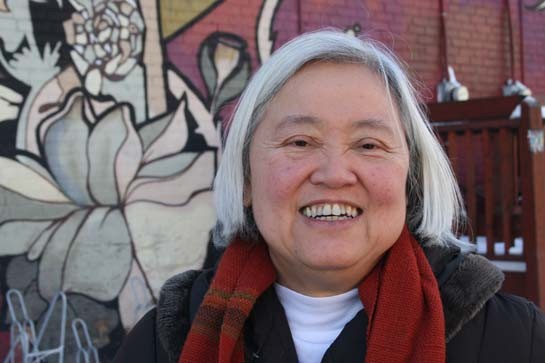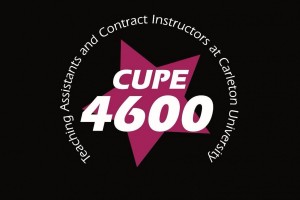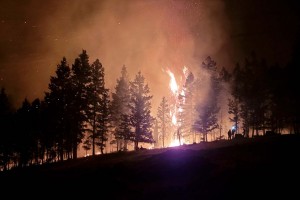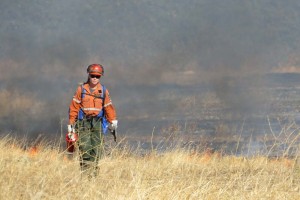............................................................
The following article is based on the talk Winne Ng gave at CUPE Ontario's (Canadian Union of Public Employees) Racial Justice Conference in Toronto on January 25, 2016. The organizers came up with the title, to which Ng responded: "What a liberating and whimsical title! It reminds me of the musical Fiddler on the Roof, where the father sings, 'If I were a rich man. . . .' I hope the following wish list will not just be wishful thinking."
............................................................
If I had my way, when unions do anti-racism work we would always begin with a clear acknowledgment of the historical and ongoing colonization of the Indigenous peoples here in their own land. We can't combat racism in isolation.
The struggle for racial justice, economic justice and environmental justice are part and parcel of the larger decolonizing and anti-capitalist project. Anti-racism work begins when we are prepared to recognize the issue of Indigenous sovereignty, and to take responsibility to right the wrongs.
Over the past decade, the Truth and Reconciliation Commission; the Idle No More movement; Chief Theresa Spence's hunger strike; the ongoing blockades against mining and pipelines; and the push for the National Inquiry into Missing and Murdered Indigenous Women and Girls, have all thrust to the forefront the ongoing colonization of and systemic discrimination against Indigenous peoples on their own land.
For the labour movement to do deep anti-racism and equity work, racial justice has to move beyond apologies.
If I had my way, we'd organize mandatory education programs as a first step to un-learn all the misinformation that has been fed to us throughout the education system.
As Justice Murray Sinclair of the Truth and Reconciliation Commission stated in an interview with the Ottawa Citizen (2015), "this is not an aboriginal problem. This is a Canadian problem. Because at the same time that aboriginal people were being demeaned in the schools and their culture and language were being taken away from them and they were being told that they were inferior, that they were heathens and that they were unworthy of being respected — that very same message was being given to the non-aboriginal children in the public schools as well."
We can only truly re-learn the real history of Canada when we take the time to unpack and acknowledge our role as treaty people, as was poignantly pointed out by Pamela Palmater in NOW Magazine. ("Why Idle No More Matters to Us All")
For those who feel that solidarity work with Indigenous peoples should not be a priority because Indigenous union membership is so tiny, particularly in large urban centres, I beg to differ. There is a need for moral and ethical leadership that goes beyond the number. Furthermore, Indigenous youth are the fastest-growing population in Canada.
If we continue to do anti-racism work without addressing the colonization of Indigenous peoples, we will merely be tinkering. We need to build a new relationship with Indigenous peoples in order to subvert and dismantle some of the entrenched colonial relationships. It is the right thing to do.
Within the climate justice movement, there is an urgency among trade unions to engage members in real conversations that acknowledge the fact that a large number of jobs, particularly in resource and energy sectors, have been built on the destruction of Indigenous communities.
The necessity of a just transition strategy that helps reverse or slow down the pace of climate change cannot be understated. ("Just transition" refers to caring for workers in resource-based industries and finding them new work while moving towards a low-carbon economy.) What will a transition plan of action and solidarity with Indigenous peoples look like, and how can we move ahead now, before it is too late?
We, as organized labour, should be in the forefront of actively engaging in the decolonizing project of Indigenous peoples.
If I had my way, every union convention would look like this room, representing every diverse strand of the membership.
If I had my way, we would have a progressive, interracial, working-class labour movement, in which workers of colour and Indigenous workers weren't pigeonholed in prescribed spaces and treated as "one-trick equity ponies."
We are sick and tired of being typecast and only being allowed to "come out and play" when the issue at hand relates to race and human rights.
We are sick and tired of being referred to as the "first" of anything — of being seen as an equity trophy. We are sick and tired of racial justice and equity being siloed.
We cannot just do this work for the optics, when we know:
* that the suicide rate among Indigenous youth is five to seven times higher than non-Indigenous youth
* that 20 per cent of Indigenous communities have no access to clean drinking water and two-thirds of Indigenous communities have been under drinking-water alerts at least once in the last decade
* that, in Toronto, 25 per cent of Indigenous youth are unemployed, and 30 per cent of Black youth are unemployed (2014 Civic Action report on youth unemployment)
* that it will take three generations for a racialized woman to catch up to her non-racialized counterpart (Canada's Colour Coded Labour Market, by Sheila Block and Grace-Edward Galabuzzi). When women of colour are systematically denied job opportunities, how can we talk about a gender wage gap without pushing for employment equity?
We can't simply go along, so that an organization can "celebrate" their equity agenda. The struggle for racial and economic justice is not just a check on someone's to-do list. We are not here to prop up someone's legacy or personal agenda.
The struggle for economic and racial justice is an ongoing commitment, and the core values of a trade union at its best. Tackling the beasts of racism and colonialism is at the heart of class struggle.
If I had my way, we would find ways to talk about race, and have courageous conversations about power and privilege. There would be a solidarity circle dialogue at the local level of every union as part of building an interracial working-class movement.
Progressive white folks have often failed to acknowledge that class is lived through race and gender, as argued by Robin D. Kelley.
lt is not uncommon in labour education settings that, when race and gender are being discussed, someone will raise the issue of class as a corrective, or as a way to reinsert their own voice as the centre of attention. Equity issues are dismissed as distractions from the larger and more pertinent purpose of reducing poverty through attacks on capitalism.
The implication here is that class war is universal, but race, gender, abilities, faith and sexuality are only particular and identity politics.
Personally speaking, I find it exhausting to have to remind them that race, gender and class are inextricably linked and that talking about racism, to quote Stuart Hall, "does not negate the issue of class, but rather, sharpens it, and makes greater meaning of the effects of capitalism."
Anti-racism work begins when white progressive brothers and sisters don't cringe at the terms "white supremacy" or "white privilege."
When we name it as it is, we are not directing our critique at someone personally but at the systemic and structural barriers that reinforce the dominant narrative. The truth is that there has always been an affirmative action program for white able-bodied men.
If I had my way, white and racialized brothers and sisters would have honest conversations about race without any sense of anger, remorse, guilt or defensiveness, and would take personal responsibility in combatting racism and oppression.
Working across differences requires all of us to have a level of humility, to look at ourselves and re-learn how we can use our earned or unearned privilege to break down some of the barriers, in order to be a strong ally.
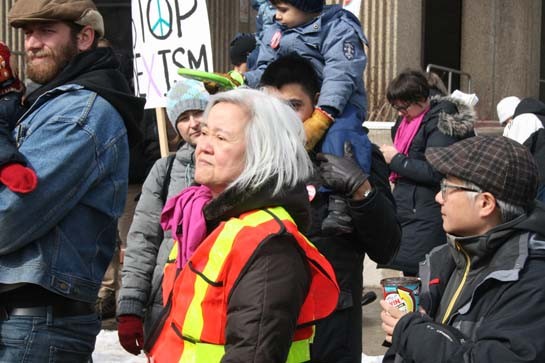
We are angry about the injustice of racism, we are angry about banging our heads against the brick wall, as Sara Ahmed poignantly points out in her book, On Being Included: Racism and Diversity in Institutional Life. "The wall stays in its place and we are the ones who get sore. When we talk about our soreness and about the wall, we become the problem. Our loyalty is questioned."
I'm not here to hide my anger "to spare their guilt" (as Audre Lorde wrote in 1984). The challenge is how to transform such anger into constructive energy.
If I had my way, union leaders would be prepared to be challenged, and, as part of their "unlearning and relearning," they would recognize that these constructive comments come from a place of constructive anger; anger about the injustices of racism and how things are moving.
If I had my way, equity training would be mandatory for all union leadership, twice a year.
Unions would use the equity guide prepared by Jojo Geronimo for the Toronto & York Region Labour Council, A Leader's Guide to Strengthen Unions: Moving Beyond Diversity, Towards Inclusion and Equity, to help them analyze, assess, audit, and then act on implementing more changes to improve on equity.
There would be a report card on the progress and lessons learned from every cycle of equity actions.
If I had my way, we would prioritize 50 per cent of the union budget on organizing — both the unorganized and the organized — and all leadership, staff and rank-and-file activists would have to be involved in organizing campaigns.
We would organize workplaces and sectors in which large number of workers of colour are concentrated. They may be in smaller workplaces.
In this era of precarious work, what are some creative ways to reach out to them? How can we adapt the Justice for Janitors sectoral organizing model? We need to put more resources into initiatives such as Unifor's community chapters; the United Steelworkers' taxi driver association, and UFCW Canada's work with the migrant workers' movement, just as examples.
These efforts act as bridges between workers in precarious employment and the labour movement.
At the same time, the critical organizing work done across Ontario with precariously employed workers by the Workers Action Centre, the Live-In Caregivers Coalition, and Justicia for Migrant Workers (J4MW) should be more substantially supported by labour, as well, in solidarity with these self-organizing initiatives.
To me, this is where deep organizing and community building comes in.
If I had my way, there would be programs for members of colour as special union ambassadors within our respective communities. We have under-utilized our resources and have not seized our power and potential as bridge-builders.
We can partner with the CBTU (Coalition of Black Trade Unionists), with ACLA (Asian-Canadian Labour Alliance), and with LATUC (Latin American Trade Unionists Coalition) in order to develop a young organizers summer institute, as a way to reach out to, and recruit, young workers in the community.
Once workers are organized — once the intensity and attention is dissipated after an organizing drive — how do we make sure that we don't leave them out in the cold again. How do we make sure they don't end up feeling the union is just another management body, "taking my dues and doing nothing."
This is where intensive organizing of the organized, a term so famously put forth by CUPE back in 1990s, is needed; where education is needed; the raising of consciousness and of solidarity.
If I had my way, we would prioritize 25 per cent of the union budget on education. We would do this so we could put in more resources at the local level, where most rank-and-file members come closest to experiencing the transformative moment of being part of the union family, of belonging (Elaine Bernard, Our Times Magazine, 2006).
The shop stewards are actually the membership's first contact with the union. How do the shop stewards interact with, and build a relationship with, diverse membership? Are they actively listening to and being serious in handling complaints about discrimination and differential treatments? This is key in winning the hearts and minds of these new members.
If I had my way, union presidents would be actively present at all new-member orientation sessions.
Way back when, we used to have citizenship classes, English classes in union halls, literacy programs in workplaces.
We have a history of innovative union education we can learn and draw from. The traditional framework of delivering a union-specific education program — in terms of who gets in, who teaches it and where it is held — can be more innovative, making union education more accessible to workers who are non-unionized and precariously employed.
Such classes could be moved out from the union hall to community centres. Another possibility would be to transform union halls into community hubs for workers and their families. The format and content could be multi-faceted: from labour-rights information sessions to study circle/book clubs that would enable community members to come together and engage in "the act of talking back" (bell hooks, 1989).
In my mind, this is a much more liberating concept of building a mass workers' movement, where workers, regardless of their status, workplace, or union affiliation, can come together, and where worker power is built from the bottom up.
If I had my way, there would be a choir. There would be sports leagues and family events held at the local level where we, as labour, would be truly part of the larger community, and where a sense of community building and solidarity through these different activities would be nurtured and strengthened.
We cannot afford to deny the ongoing colonization project on the Indigenous communities in Canada. Nor can we be silent about the injustices experienced by migrant workers and others due to the systemic racism in the Canadian immigration and refugee programs.
Equally, we need to acknowledge the brutality of anti-Black racism and heed the call for justice by the emerging Black Lives Matter movement.
The intersectionality of race, gender, class, disability, sexual orientation and Islamophobia requires all of us to critically reflect and work across differences.
Recognizing the mutuality and taking responsibility for building a different world, a different labour movement, requires us to be willing to step out of our comfort zone and break the mask of benevolence.
In the remaking of our labour movement, it is imperative that we engage in courageous conversations and take collective action to address the inequity and injustices of power, privilege and greed. Only when we move toward transforming and fundamentally changing ourselves and our movement can we reach solidarity for all.
Some of you probably feel that what I've been talking about is all pie in the sky and that these re-imaginings are not practical or possible.
I'd like to remind you what Dr. Nelson Mandela said: "It always seems impossible until it's done."
So as my closing, I'd like to change the title of this talk to "When we have our way." When we have our way, this is how our labour movement will combat racism.
It always seems impossible until it's done! Dream big and be bold, brothers and sisters. Solidarity!
Winnie Ng is a long-time labour-rights activist, educator, and community organizer with a deep commitment to anti-racism, equity and worker empowerment. She served as the Unifor-Sam Gindin Chair in Social Justice and Democracy at Ryerson University from 2011-2016. She is currently an adjunct professor with Ryerson’s School of Social Work.


